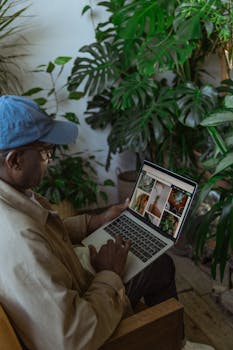What is recreational screen time?

What is recreational screen time?
In today’s tech-driven world, recreational screen time has become an integral part of our daily lives. It encompasses the moments we spend engaging with screens for pleasure rather than productivity. Understanding this concept is crucial, as it has far-reaching implications on our productivity and personal development. Balancing recreational screen time with other essential activities can significantly impact our mental well-being and productivity levels.
Understanding Recreational Screen Time
Recreational screen time refers to the hours spent using screens—like smartphones, tablets, computers, and TVs—for entertainment rather than educational or work-related purposes. This type of screen time is often associated with leisure activities that provide relaxation or enjoyment. Unlike educational screen time, which can enhance learning and skill development, recreational usage might not always yield beneficial outcomes.
What Activities Fall Under Recreational Screen Time?
A variety of activities fall under recreational screen time, each catering to different interests and preferences:
- Gaming: Video games have exploded in popularity, offering immersive experiences that engage players in virtual worlds.
- Social Media: Platforms like Facebook, Instagram, and TikTok allow users to connect, share experiences, and consume content.
- Streaming Videos: Services like Netflix and YouTube provide an endless supply of movies, series, and user-generated content.
- Browsing the Internet: This includes exploring various websites for fun, reading articles, or watching videos that pique your curiosity.
All these activities can be enjoyable but vary in their effects on our mental health and productivity.
Benefits of Recreational Screen Time
While excessive screen time can have detrimental effects, moderate recreational screen time can offer several benefits:
- Relaxation: Engaging in enjoyable activities can help unwind after a long day, reducing stress levels.
- Social Interaction: Platforms for social media and online gaming provide opportunities for connecting with friends and making new ones, often fostering a sense of community.
- Creativity Stimulation: Some recreational activities, such as gaming and content creation on platforms like TikTok, can stimulate creativity and problem-solving skills. Research indicates that low levels of recreational screen time can be associated with a decreased risk of depression, showing that some screen engagement can be beneficial.
For more insights into the positive aspects of recreational screen time, you can explore this study from the National Institutes of Health.
The Impact of Excessive Recreational Screen Time
However, it’s important to recognize that excessive recreational screen time can lead to various negative consequences, affecting our mental health and physical well-being.
Mental and Physical Health Consequences
The consequences of too much recreational screen time can be severe:
- Anxiety and Depression: Prolonged screen use can lead to feelings of isolation and depression. When screen time replaces real-life interactions, it can create a cycle of anxiety.
- Sleep Disturbances: The blue light emitted by screens interferes with the production of melatonin, the hormone responsible for sleep, leading to difficulties falling asleep or staying asleep.
- Sedentary Lifestyle: Spending too much time in front of screens often correlates with physical inactivity, which can contribute to obesity and other health issues. The link between excessive screen time and negative health outcomes is becoming increasingly clear; studies indicate that it can lead to chronic neck and back pain, obesity, and other health concerns.
For a deeper look into these negative effects, check out this article from Nexus Health Systems.
Balancing Recreational Screen Time with Productivity
Finding a balance between recreational screen time and productivity is essential. Here are some strategies to manage screen time effectively:
- Set Clear Goals: Define what you want to achieve during your screen time. Whether it’s relaxation or social interaction, having a purpose can help guide your usage.
- Use Time-Management Tools: Apps that track and limit screen time can be helpful in ensuring you don’t exceed your intended limits.
Tips for Healthy Recreational Screen Time
To enjoy recreational screen time without compromising your productivity or well-being, consider these actionable tips:
Setting Boundaries
Setting time limits and creating schedules can significantly enhance your screen time management. Designate specific blocks of time for recreational activities. This approach not only helps you enjoy screen time guilt-free but also ensures you allocate enough time for other important activities.
Choosing Quality Over Quantity
In a world overflowing with content, selecting high-quality material is crucial. Opt for content that enriches your life and aligns with your personal goals. Engaging with meaningful, educational, or inspiring content can transform your screen time into a more rewarding experience.
Conclusion
Recreational screen time is a double-edged sword. It can provide relaxation, social interaction, and even spark creativity, but it can also lead to various mental and physical health issues if not managed properly. By understanding its implications and finding a balance between screen time and other aspects of life, you can enjoy the benefits of technology while promoting your overall well-being. As we navigate this digital age, it’s essential to keep our screen time in check for a healthier, happier life.